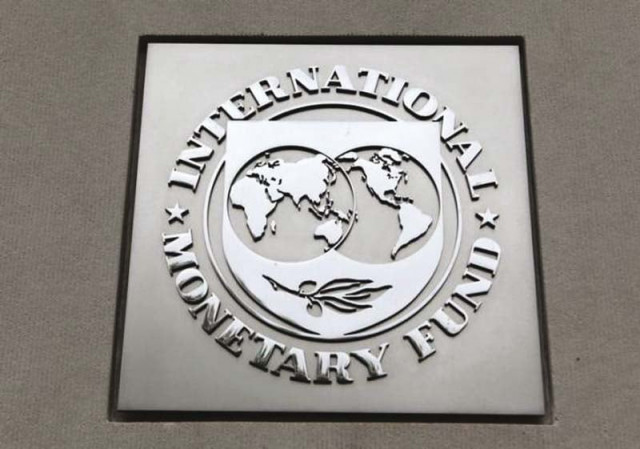Significant progress achievable: IMF
Fund maintains Pakistan has come a long way in implementing reforms since 2013

This is the time to ensure that the vicious cycle of debt is not repeated – when deep-rooted and sustainable progress can be made in areas of taxation, energy and restructuring loss-making entities. PHOTO: REUTERS
Meanwhile, with a balance of payments crisis staring the country in the face, the IMF agreed to a $6.6 billion loan under the three-year EFF, coupled with a reforms agenda that would help Pakistan move forward and recover from the crisis. Jeffrey Franks, the then IMF mission chief for Pakistan, had briefly explained the country’s economic position at the time when the Fund’s Executive Board approved the loan, which was to be given out in tranches and conditioned on subsequent reviews of economic progress.
Two years later, SBP’s reserves have touched $13.615 billion, the current account deficit has shrunk and growth of gross domestic product (GDP) has inched higher. But has Pakistan truly been able to implement the reforms it so badly needed to during this time?
Tax collection has increased, but so have the rates including GST on petroleum products. Energy deals have been signed and are to be implemented – including the $46-billion China-Pakistan Economic Corridor – but everyone continues to cry over load-shedding woes. Exports continue to decrease with value-addition absent from the agenda. Exporters, mainly the textile industry, continue to lament increased costs, energy crisis and rupee appreciation. They have been unable to avail the GSP Plus status as well.
But the SBP has been granted more autonomy, aimed at limiting government’s interference and its borrowing. The privatisation process has, so far, only seen profitable entities get out and into the hands of private investors, but problematic state-owned entities continue to look for bailouts.
Moving forward
It would be safe to say that Pakistan’s economic performance has been to deal with short-term issues.
IMF Mission Chief for Pakistan, Harald Finger, also said significant progress was achievable by the end of the programme next year.
“The focus of efforts has gradually shifted toward deeper structural reforms that are needed to stimulate higher and sustainable economic growth,” Finger told The Express Tribune. “At present, many of them are in various stages of implementation and significant progress is achievable by the end of the IMF-supported programme next year.”
Finger also hoped for headway in the privatisation process – one of the thorniest issues that extend beyond the realms of economics and into the dirty area of politics.
“For a number of companies, including Pakistan Steel Mills and Pakistan International Airlines and power distribution companies, preparatory work has been under way for some time. We are hopeful that significant progress can be made in the period ahead.”
While the tax-to-GDP ratio is still among the lowest, Finger appreciated the progress Pakistan had made.
“Revenue has increased to 11% of GDP during the course of this programme. The number of taxpayers filing income tax returns has increased as well. It will be important to continue the current efforts.”
While admitting that the country’s fiscal deficit and government debt remain high, crowding out private investment, the reduction of energy subsidies was a step in reducing it, added the official.
With the EFF due to end next year, Pakistan needs to fast-track structural reforms in the last 12 months. This is the time to ensure that the vicious cycle of debt is not repeated – when deep-rooted and sustainable progress can be made in areas of taxation, energy and restructuring loss-making entities.
The writer is a staff correspondent
Published in The Express Tribune, August 24th, 2015.
Like Business on Facebook, follow @TribuneBiz on Twitter to stay informed and join in the conversation.



















COMMENTS
Comments are moderated and generally will be posted if they are on-topic and not abusive.
For more information, please see our Comments FAQ